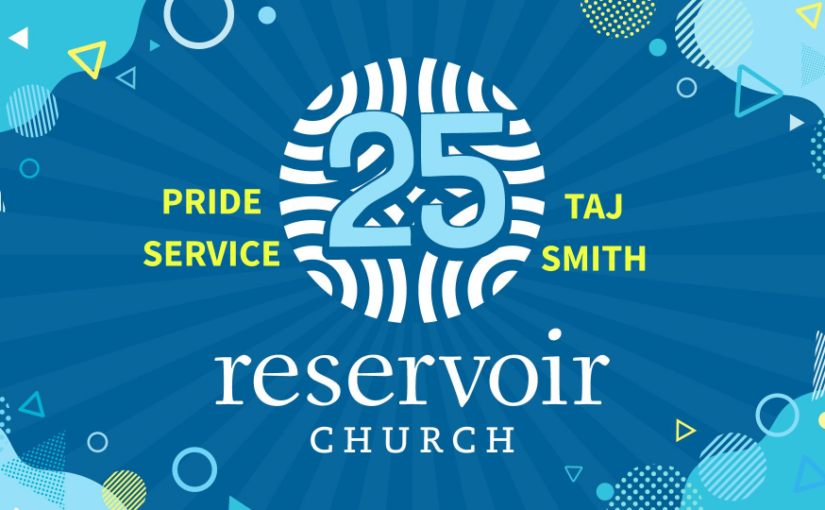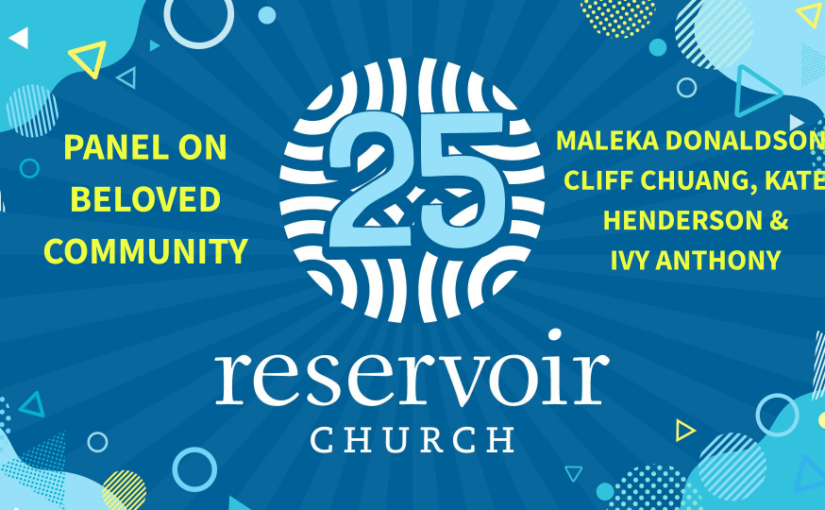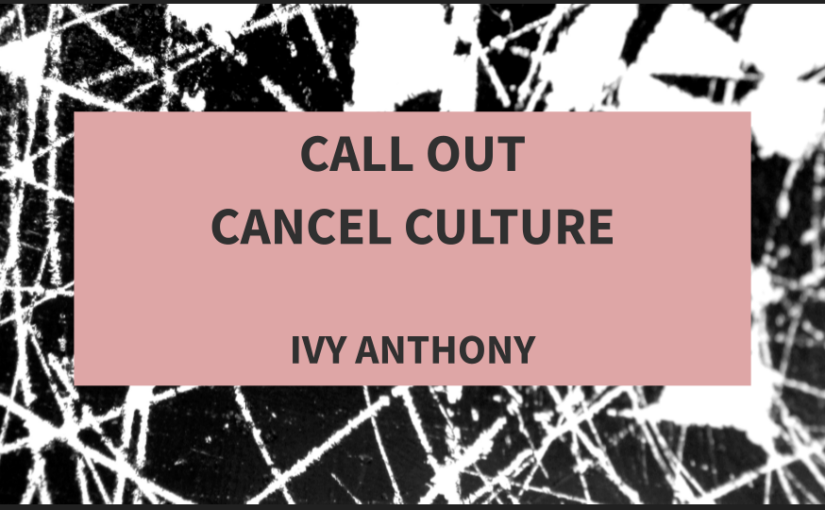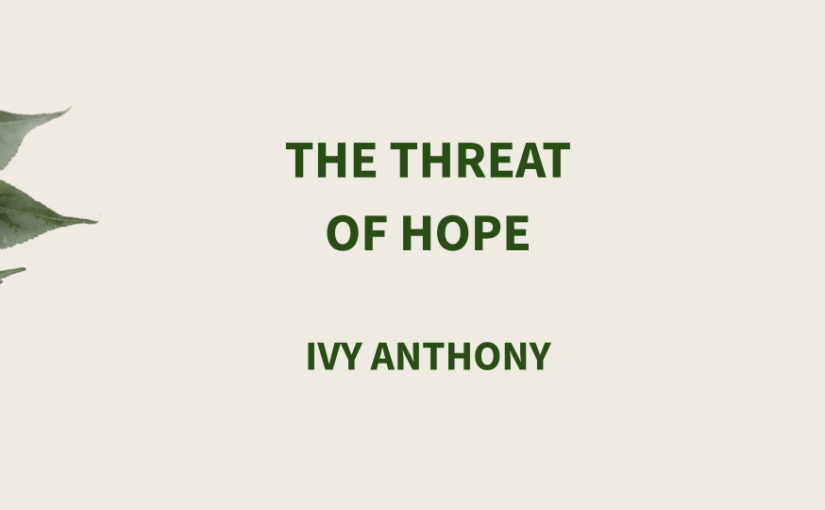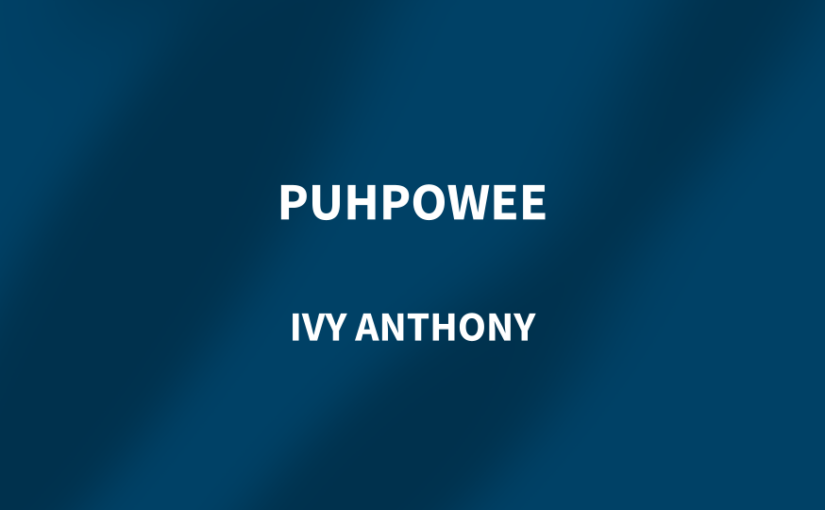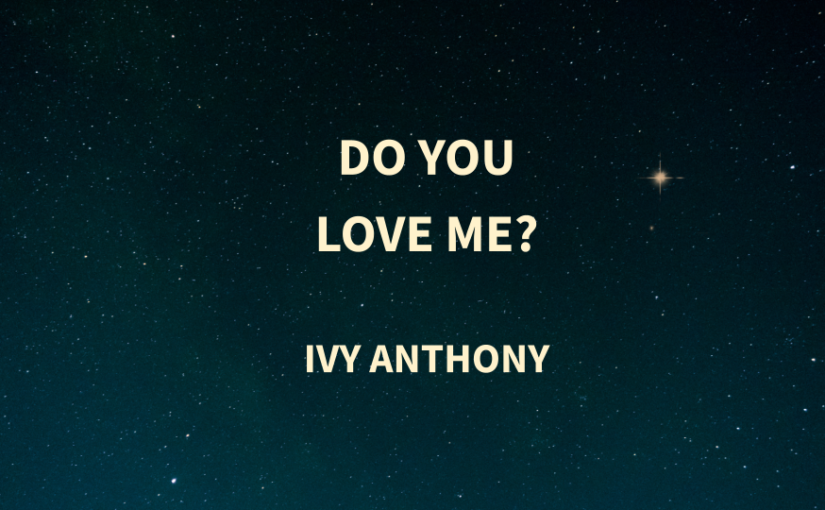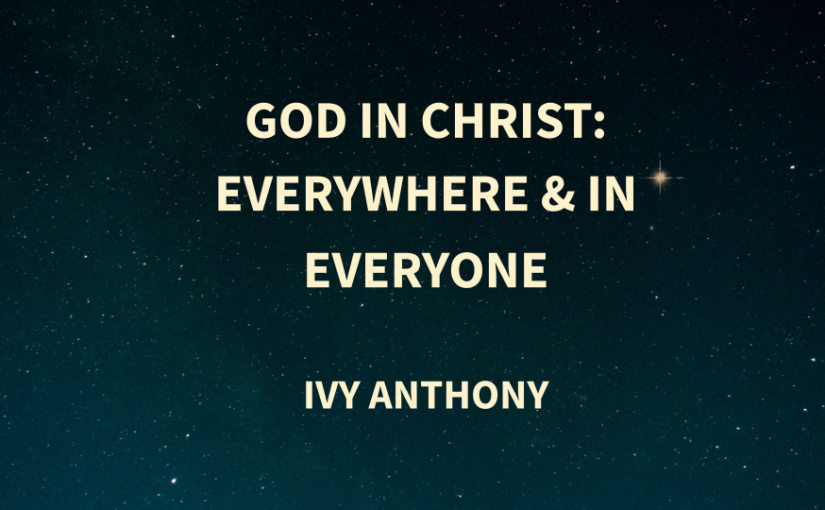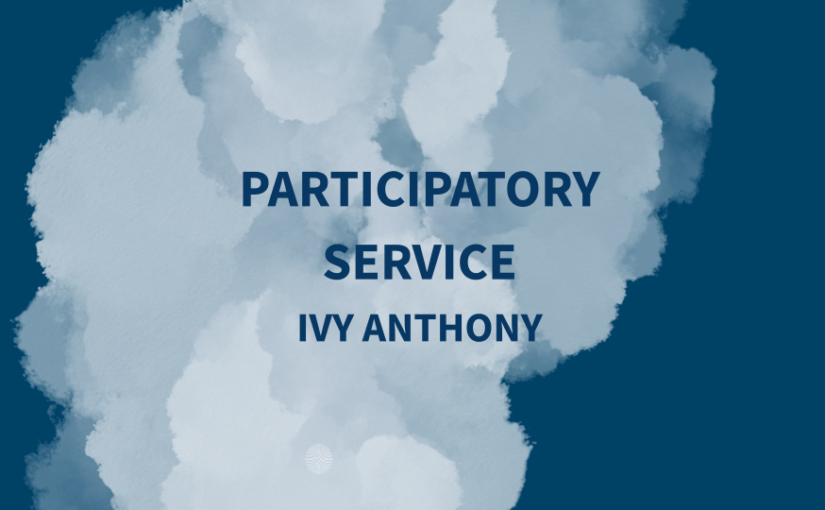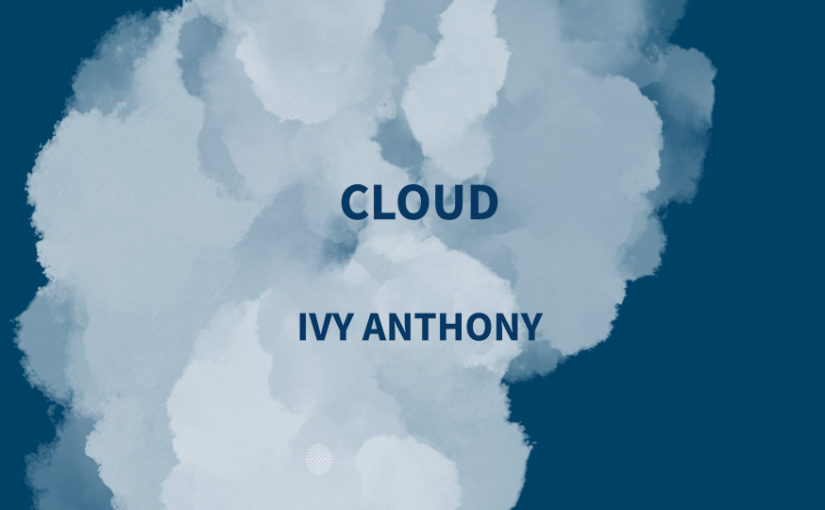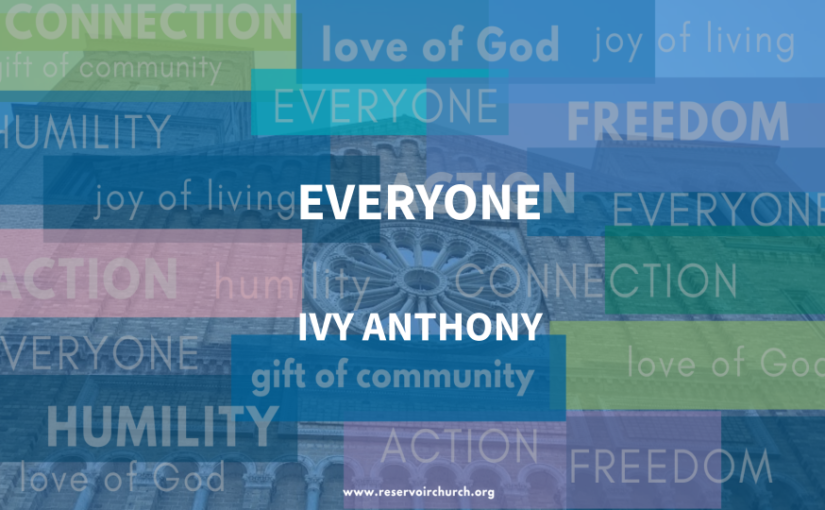Good morning friends! It’s so good to be with you – I’m Ivy, a pastor here. And this Sunday is our 3rd Sunday of Advent. This season that invites us to prepare/anticipate Jesus’ birth. This Advent we’ve been inviting you to pay attention to where you might perceive the love of God with you – and around you. I hope your week held a little bit of wonder, something good, true and beautiful.
This week my NEW laptop stopped working. Actually just the screen stopped working – which you know, functionally means I can’t really do a lot of work. There wasn’t a flicker of life on that screen. No trick, no long reboot – no nothing seemed to bring light back to the screen.
A streak of fear shot through my body, as I thought about my week ahead.
Not because I couldn’t imagine a backup plan – you know there are libraries and friends and my phone that I could use to get work done.
But it was my “tabs.” Allllllll the many, many hundreds of tabs that beautifully run along the top of my screen.
Tabs that are inspiration for projects I have lined up in the new year. Tabs that have articles up that I want to return to for research. Tabs that have scripture, and design files, and shopping carts, and Tabs from like 2018 where I found something inspirational that didn’t quite have an outlet then – but I’m sure any day will…
These tabs are little lights that mark my days. Keep me on track – let me know what I should be thinking about, remembering what I shouldn’t forget – and guiding where I should be going.
And now it was just dark… a completely blank screen. Nothingness.
And this is how I feel this time of year in some ways – the sun will set today at 4:11pm.
Darkness and coldness encroaches and closes in.
The markers of warmth and light and summer days, and beautiful Fall colors, and sounds of kids splashing in sprinkler parks and sticky/drippy ice cream cones wane.
To me, the landscape around me is just emptiness. Emptiness abounds. Hibernation seems like an incredibly smart option.
And this is really the invitation of Advent – not hibernation! *But the invitation to close all our tabs.
Yes – likely the real ones on your computer screens. But also the tabs we’ve have lined up in our hearts and minds about what and how you know God.
Advent is a disruption of knowing – and it is an invitation into darkness.
And to regard darkness as a new way to know.
Advent embraces darkness, and asks us to not just endure it, or to wait it out until it passes – but to mine the dark. To see, to look, to perceive God with NEWNESS. To ACTIVELY engage the dark as the setting by which we rediscover the expanse of God in Christ.
A darkness that is sacred, that is freedom. A darkness that has always EXISTED since the beginning of time (maybe before time)… A darkness that is the original language of God and the birthplace of everything and everyone – even before the birth of Jesus.
This Advent Series that we are in is simply called, “WITH US.” And it’s an exploration of the self-giving love of God… “in Creation” as Steve talked about the first week – and “in Jesus”, as Lydia talked about last week.
And, “In Christ” – as I’ll be talking about this week.
We’ll spend this time together wondering just what we mean when we say “Christ?”
How is Christ different from Jesus? Does it matter? Does it expand our awareness of God?
And how does Advent invite us to celebrate the coming of God incarnate in the birth of Jesus, AND illuminate the reality of a what-has-always-been a Christ-soaked world?
Advent – while a beautiful, rich time of waiting and anticipation – is also a challenging and active time. One that asks us to close all the tabs that have helped us know God and lean into the darkness – a returning of sorts to the beginning – to the darkness of the womb.
Advent is a season that is as much about our own coming and becoming and arrival…to the ongoing story of God…as it is about Jesus’ birth. It’s a time where the belief grows in us – the belief that we can continue to discover God afresh in ways we hadn’t ever imagined or seen… in the places and people where we already declared “all is lost” – “there’s nothing there…”
And the reminder that God “WITH US” is as much a promise as it is an invitation. An invitation that God needs our partnership to create/form new ways of justice/ birth new wonders, fresh perspectives. God wants to do this WITH US.
It’s how our own unfolding and spiritual growth happens – valuing the darkness as the rich birthing ground it is.
We’ll take a look at a couple scripture,
A couple of stories from me,
Some wisdom from Father Richard Rohr,
And a whole lot of the Spirit of God – that thankfully communicates to us FAR MORE than a sermon could ever outline.
Prayer
God of wonder and hope and light and darkness,
God that is with us at our first breath, our last, and in our every breath in between.
Help us today to orient to you – whatever you have for us – to become sensitive to your wonder of us, your love for us – in a way that promises to mark our days with a fresh openness and freedom – to perceive you in the many places we have yet to unturn. *amen*
Kids Church Story
If you ever want to listen to a phenomenal sermon you should volunteer in kids church. The stories of God told and the responses kids have to these stories… never-ever-disappoints.
For years I volunteered in the zebras room, which is the 3-year old room. Each class involved among free time, and snack time – story-telling time. And the story telling uses a curriculum called Godly Play. It highlights wondering questions – as a way to know God – versus “teaching a set of “known beliefs” about God (who God is).
So at the end of each story-telling session – which involves simple, tangible wooden and felt components – I would ask one or two of these wondering questions:
“I wonder where you noticed God in this story?”
“I wonder where you are in this story?”
And often there’d be a great pause – and there would be an array of responses…like this:
- “God smells like my mom’s perfume.”
- Or “my grandmother died.”
- Or one response, that had a long standing run with one particular class was, “It’s my birthday”- every other kid chimes in, “It’s my birthday too!”
- …and naturally we end our story time by singing “happy birthday”… to everyone (and kind of to no one) :).
One of the reasons I stayed volunteering long after my kid moved out of that class was because I took those responses of these 3-year olds seriously. I mean I laughed and sometimes thought, “really? wow that’s wild!”…
But I took their responses in as scripture.
I had to close every tab in my brain that had previously suggested what scripture should be – and sit with these verses and chapters of the Bible – that were spoken out of the mouth of babes…
But oh how it perplexed and stretched my knowing & awareness of God.
Kids know how to engage the expanse of God (beyond form, name, or words) – when to us it looks like they have nothing to work with…
“Wait – you haven’t memorized scripture. You haven’t understood yet the historical context of this story of Jesus, or studied kenotic theology or the mystics…”
Kids are like hold on, let me just reach into my real life here…
“Here you go, my mom’s perfume (love it, and love her), my grandmother who died (that was sad, and I loved her), and my birthday (love that!) – and btw mark it on your calendar – because it happens every week!”
And somehow in these exquisite responses they perceive and name the pattern of life and God…. which involves life and love, death & love, and life and love again. Such great, great love – and such suffering. Seems like even a thoughtful, generous question of “I wonder where God is in this story?”
Is too small a question for the Christ that these kids point us to. They seem to get that
“Christ isn’t just Jesus’ last name – but is a name for the immense spaciousness of all true Love (5)”?
God in Christ
It’s true – God in Christ is the indwelling presence in everyone and everything since the beginning of time as we know it. That’s big. . . like cosmic big.
And Christ competes with and excludes no one, *excludes no response – no description or name for God* – but includes everyone and everything.
In fact the only thing that Christ excludes is exclusion itself.
In Colossians 1:15-17 we read:
Christ is the image of the unseen God
And the firstborn of all creation
for in Christ were created
All things in heaven and on earth
Everything visible and invisible,
Thrones, Dominations, sovereignties, powers all things were created through Christ and for Christ.
Before anything was created, Christ existed,
and all things are held together in Christ.
The refrain here,…all things, all things, all things, all things in heaven and on earth – all things are held together in Christ – before anything was created.
It’s so beautiful and poetic.. but..really all things? I use to get nerve-y around this idea of God being so limitless. The faith context that I grew up in talked about God as love – but it was digestible …. a fairly definable God, and a fairly controlling LOVE – and THAT God and THAT love were for a pretty limited amount of people. Not one of mystery and discovery and ongoing becoming.
But back at the beginning in Genesis where it says,
“And God said, “let there be light” and there was light… (Genesis 1:3)…it seems that here, God joined in unity with the physical universe and became the light inside of everything (Rohr)…
And this is helpful because Christ is the light that allows ALL OF US to see things in their fullness – to perceive Christ everywhere and in everyone – and as Father Richard Rohr puts it,
“when we consider the world around us as both the hiding place and the revelation of God, we can no longer make a significant distinction between the natural and the supernatural, between the holy and the profane.”
There are no lines.
And we can look at the arc of history – and see how the mystery of God was engaged.
It’s how the Jewish people historically experienced God’s nature through light. They saw the glory of God known as the Shechinah, which means “dwelling of God.” Moses saw God’s light in the bush; the Jewish people were led by light in a pillar of fire that guided them in the desert. The Light also appeared in the tabernacle and the temple.
It is the light that shone round about the angels as they said to the shepherds,
“Don’t be afraid! Look! I bring good news to you—wonderful, joyous news for ALL PEOPLE. Your savior is born today in David’s city. He is Christ the Lord.”
Christ is the light of God’s glory and the imprint of God’s being – one that existed at the beginning – sustains the universe and is good NEWS FOR ALL PEOPLE NOW, today.
It is the universal light – steady throughout time.
Now Jesus (God in flesh) – as Lydia spoke about last week – brings the message home in a personal way over thirteen billion years later! In Jesus, God’s presence became more obvious and believable in the world. Jesus – as Lydia said is God’s love language embodied. The formless took on form in someone we could
“hear, see, and touch” (1 John 1:1), making God easier to love. (Rohr)
And so as we put together Jesus and Christ it gives us a God who is both personal and universal. A healthy expression – whereas a
“merely personal God can become tribal and sentimental – held captive and limited by culture, nationalism and by Christianity’s own cultural captivity to a white and Eurocentric worldview. And whereas a merely universal God never leaves the realm of abstract theory and philosophical principles.” (adapted 19)
But it is also how we remember with humility, when we try to shrink Christ – that Christ is always larger than any one era, culture, empire or religion. Always surprising – growing in the margins where we least expect, exemplified in the most barren, seemingly desolate, looked over areas.
How much of Jesus Christ is a mystery, and how much of our lives are messy and hard and require a God that does not give up on us. A God that is big enough and personal enough both to find us and hold us when we hurt.
“All things are held together in Christ.”
We need such great love – to hold us in such great suffering.
A God who is outpouring and self-giving in love – holding us – holding all things – in this flow – even as life threatens at times to sweep us away.
We read in Romans the extent of this promise:
Romans 8:35 – 36
35 Who will separate us from Christ’s love? Will we be separated by trouble, or distress, or harassment, or famine, or nakedness, or danger, or sword?
36 As it is written,
We are being put to death all day long for your sake.
We are treated like sheep for slaughter.
Now before we continue with the last 3 verses – I want to pause here because this last verse I read is referencing a different scripture – Psalm 44.
Where God’s people are having a real moment with God. That resonates strongly with me.
Where God’s people are saying –
“Guess who will feel separated from Christ’s love in times of trouble and distress? US! Guess who feels like we are dying as danger and sword come our way??? US!!!! We feel separated from your love.
Where are you God? We haven’t forgotten you – or broken your covenant? Or turned our hearts away! Yet you are not here.
Psalm 44
It says in verse 23 and onward,
23 Wake up! Why are you sleeping, Lord?
Get up! Don’t reject us forever!
24 Why are you hiding your face,
forgetting our suffering and oppression?
25 Look: we’re going down to the dust;
our stomachs are flat on the ground!
26 Stand up! Help us!
Save us for the sake of your faithful love.
WAKE UP! STAND UP! GET UP! HELP US! SAVE US!
If this world is truly Christ-soaked then where are you?
I don’t know about you – but I definitely feel like this when I’m getting no indication that God is with me… when God feels literally light years away – when I am just looking at a blank screen.
Is it true God that you can really be for us? When life seems SOOOO against us?
Help us God! Could you just be a beacon of light? Not leave us fumbling in the void.
It’s interesting because in the preceding verses in Psalm 44 – the people remember that God had been kind to their ancestors…
“planted their ancestors – given them roots…”
Set their ancestors free – and it was the light of Christ’s face that saved them.
It is hard, hard, hard to imagine that there is anything but nothingness around us when we are struggling. Why can’t God just show God’s face when we need it most?
I don’t know.
But I do know that wherever and whenever and in whomever we have felt goodness, experienced love in those times – help, comfort, reprieve, rest, a snack… whatever is good and true and beautiful, that too is Christ.
Even if we have never ascribed the name God to it before.
A quick story to this point, and then I’ll close:
Right around the time my son started in the Kids programming across the way – he also started preschool in our town. And two afternoons a week, I’d go to pick him up at preschool and he would come running to me – yelling
“mommy, mommy you’re here!”
That winter though, a little boy in his class also started running to me at pick-up and calling me “Mommy….”
It was a heart-wrenching move – because his mom had died a few weeks earlier while out for a jog.
Something about me – held the likeness of his own mom in his eyes.
*And I’d close all the tabs that said:
“I don’t know if this is the best thing for this little guy – … psychologically – for the process of grief – for attachment issues in the long run….?”
I would just let him wrap his arms around my knees, and rub his little back a few times.
And then he’d toddle off to the playground.
Of course, no one corrected him – not the director of the preschool, or the teacher, or me, or my kid. No one said,
“that’s not your mommy!”
Because somehow in those moments we know – we can’t define or limit God by a word/or even a name. From the beginning YHWH (Yahweh) let the Jewish people know that no right word would ever contain God’s infinite mystery.
Any kind of real experience of God will usually feel like love.
It will connect you – at new depths and heights and dimensions – Richard Rohr says,
“In God you do not include less and less; you always see/perceive and love more and more. Anything that draws you out of yourself in a positive way – for all practical purposes – is operating as God for you at that moment – goodness, truth, beauty.” (52)
Your mom’s perfume, your grandmother’s death, your own birthday… is as much God – as the God we hope to encounter in church. And God celebrates this – God is not threatened, because God is free, not a God of control.
And in the moments that feel darkest to us – absent of God… God stands up, gets up, – wakes US up and nudges our hearts, our bodies, our minds, unto greater attention. It’s like it is to fumble in the dark – until our eyes eventually adjust … so too, can our spirits adjust to the love of God that is the very essence of our DNA and in the very matter upon which we live.
“Scientists have discovered that what looks like darkness to the human eye is actually filled with tiny particles called “neutrinos” slivers of light that pass through the entire universe. Apparently there is no such thing as total darkness anywhere, even though the human eye thinks there is. Knowing that the inner light of things cannot be eliminated or destroyed is deeply hopeful.” (Rohr)
*And so if my knees were a flicker of light for this little boy who lost his mom – or to his Dad who was always standing nearby at pick-up, so be it.
I’m not saying I was CHRIST in this scenario – not at all.
“I’m saying that Christ is everywhere; and that in Christ every kind of life has a meaning and has an influence on every other kind of life.” (3)
And this is as constant as the light that fills the universe.
The last 3 verses of the Romans passage I started say: (Romans 8: 37-39)
But in all these things we win a sweeping victory through the one who loved us. I’m convinced that nothing can separate us from God’s love in Christ Jesus our Lord: not death or life, not angels nor rulers, not present things or future things, not powers or height or depth, or any other thing that is created.
BECAUSE THE height and the depth and the width of Christ’s love adds galaxy-sized-dimensions that we can’t ever fully describe, measure or define it….
All we can do is live it. In this messy, incarnate, mysterious life.
And pay attention as the Advent Guide invites us to – to perceive the love of God with us and around us.
In a world where empire, intense political and militaristic landscapes and the killings of innocents are rampant… Jesus is born. A birth story that involves a sky, a star, AND astrologers that read the sky for God’s divine presence, and sheep and cows, and a donkey – all of creation – every creature somehow a part of the Good news, the ADVENT of love. . . And Jesus Christ is still being born – a love and a light that still compels us to discover God in new, stretching ways – today.
I don’t know what kind of space you are in today, friends… Maybe you are in grief, or maybe your voice is hoarse from shouting
“Stand up God!”
WAKE UP GOD!… or maybe this waiting of Advent, stirs in you a deep tiredness and weariness from waiting for so many things, for far too long … But maybe you are finding comfort and joy in a new shirt, or a lit candle at the end of a long day, or a stranger, or a poem or a bird or a tree at the end of your street…. – may you trust that it is the love of God – the
“illuminating light that enlightens all things…. “
Remembering that when Christ calls God’s self the
“Light of the World” (John 8:12),”
God is not telling us to look only to God – but to look out at ALL of LIFE. And see that the same love and glory of Christ that shone round ‘about the shepherds, that visited Mary in a quiet room, the light that spoke to Zechariah, that laced the very matter of creation since the beginning of time…
Is here too.
And is still coming.
Is still unfolding… in us and WITH US.
And is waiting to be seen everywhere else too.
Prayer to end:
Ephesians 3:14-19
Christ our Savior – today I ask that you strengthen our inner selves with the riches of your glory through the Spirit. 17 I ask that you live in our hearts through faith – and through doubt – and through suffering and through joy…. Strengthen our roots in love, the roots you planted our ancestors with – and give us the power that it takes to grasp love’s width and length, height and depth.. And help us to know the love of you – that is beyond knowledge so that we can be filled with your self-giving love – filled entirely with the fullness and light of God.
Resource:
The Universal Christ: How a Forgotten Reality Can Change Everything We See, Hope For, and Believe
Book by Richard Rohr
BENEDICTION
It was so good to be with you today!
My friends – Jesus Christ awaits your partnership.
May you be surprisingly renewed in the days of coming darkness.
May you find new depths, new heights, new widths of Gods’ love…
In your wondering, in your desires, in your doubts, and in your joy…
As much as you do in the people nearby.
Enjoy your day
And
Enjoy what unknowns are awaiting your arrival.
May you be blessed,
Amen.
I look forward to being with you next week,
Same time, Same place.
Be well.


